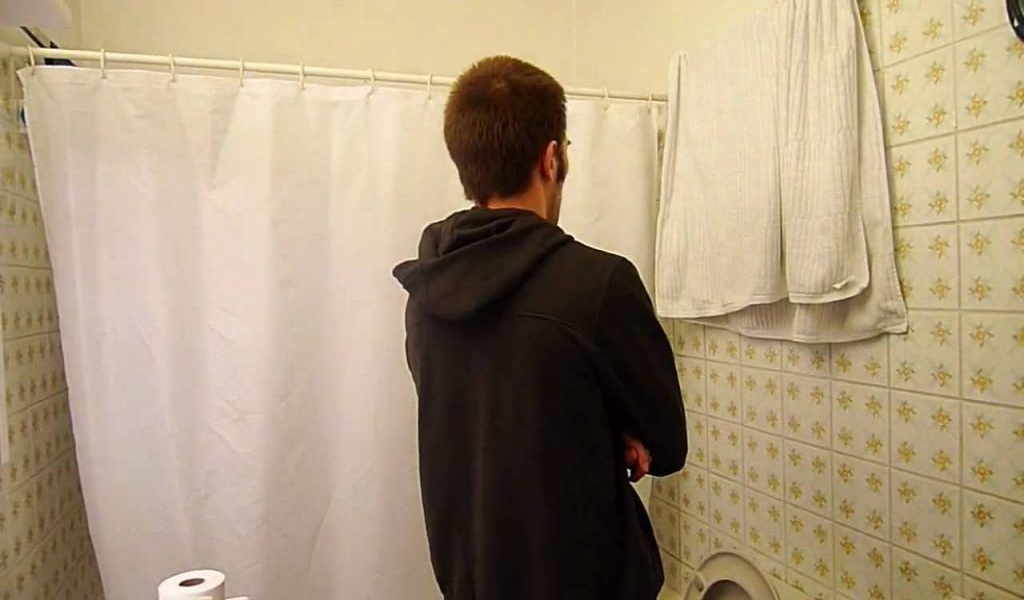Whenever you use the restroom in a public place, you may be overly aware of the presence of other people in that same room. For various reasons, this can leave some people simply unable to pee; this inhibition is commonly known as “shy bladder syndrome“. Because it can become a heavy burden on both your physical and mental health, as well as your social life, you’ll obviously be looking for ways to solve the issue as soon as possible, so let’s have a quick look at what’s going on and how to deal with it.

Understanding your shy bladder
Having trouble peeing in public places may keep you from going out with friends, and it can also be a massive problem when you have spend a day at work, go to school, or travel away from your home. There are people who just take a while to “get going”, but if you’re really unable to pee without complete privacy, you’ll be likely to just suffer through it, which can actually cause serious damage. You may under-hydrate to prevent yourself from having to use the bathroom, or hold it for too long and as a result stretch out and weaken your bladder — which will only make your condition worse.
In nearly all cases, “peeing stage fright”, officially known as paruresis, has to do with some kind of social anxiety. It may be the fear that other people will be able to hear or smell your pee; sometimes, there is a specific pee-related trauma that you keep obsessing over, like being rushed or harassed by others in a bathroom setting. Either way, it’s often made worse by a negative focus on the fact that you can’t pee. The anxious thoughts you have in this situation make your pelvic muscles unable to relax, which is what blocks the flow of urine. It is thus not a physical, but a psychological condition.
Common cures for paruresis
Whether you choose to see a psychologist or physician about this or decide to go at it on your own, it’s always useful to have a starting point. Here are a few things you may want to try to overcome your paruresis.
A common recommendation for people with shy bladder syndrome is to try and stop obsessing over the active process of peeing. Urination is a completely natural process, and you can trust your body to take care of it on its own. You can accomplish this by focusing on something else while you use the bathroom.
Some form of medication may be useful to you. If an enlarged prostate makes you pee more often than you’re comfortable with, causing you to prefer to stay close to home, that underlying condition can be treated with medicine; more general anxiety may be resolved through the use of such medications as Xanax.
Finding other people that are struggling with the same issue can definitely help alleviate the embarrassment and social stigma you may feel. There may be a local or online support group that will show that you are not the only one going through this, and maybe you can even share experiences and helpful tips!
There are ways to relieve general physical stress, such as yoga, breathing exercises, and meditation. Muscle relaxation exercises may also be helpful: you can practice the tensing and relaxing of muscles (including the pelvic muscles!), which can help you trick your body into being relaxed in a stressful situation.
A method that is universally praised as being highly effective is called “graduated exposure therapy”. To practice this, you’ll need an assistant, so find a friend, partner, or other family member that you trust. The way it works is that you try to use a restroom while your assistant stands a little distance away from you, down the hall from the restroom, for example. If you can practice this a few times, your “pee partner” can move in a little closer, and stand outside the bathroom door. Taking a small step at a time, without putting too much pressure on yourself, you will see considerable progress after only a few weeks.
The steps above can help you get out of your home and relieve a lot of social anxiety. If you are at all reluctant to involve another person, whether in the graduated exposure therapy or by contacting a support group or therapist, keep in mind that you may do irreparable damage to your body, and that there is no need to suffer alone!

Matilda Shue a health blogger, but her words have the power to change your life. She is an avid reader and she loves nothing more than curling up with a good book. She always strives for perfection in everything she does, so it’s no surprise that she plans on becoming the next JK Rowling one day!






